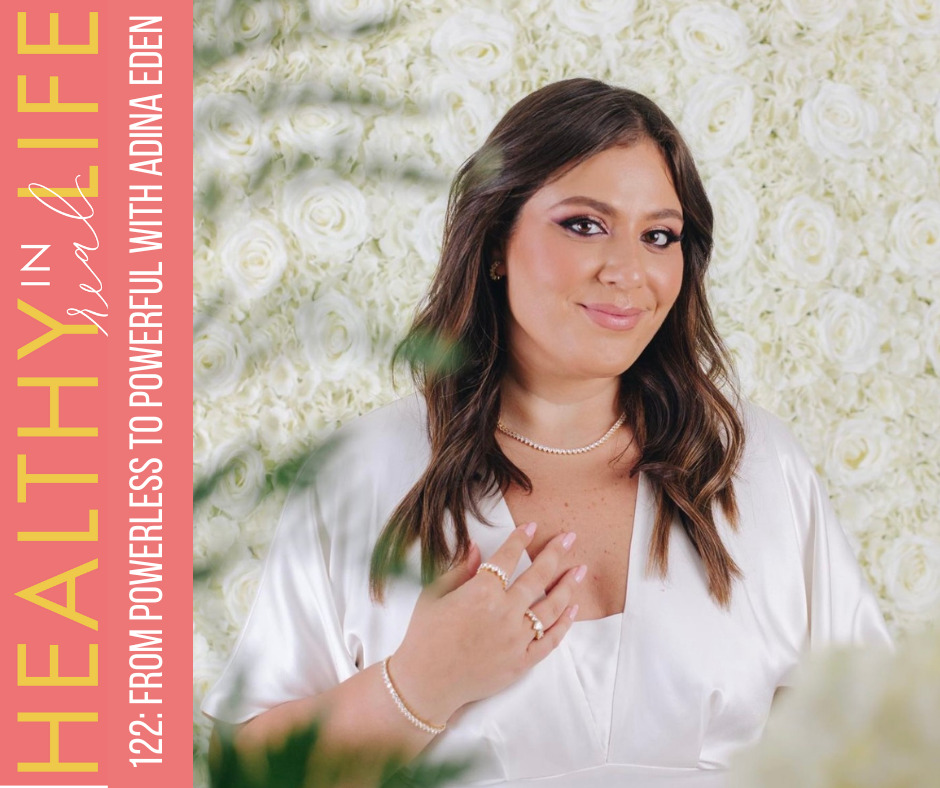As we reflect on 2022, we take a look at the new office working week and the benefits that coaching brings for those working remotely

Since the pandemic, the way we work has changed dramatically. With the majority of businesses and employees forced to operate remotely, we’ve seen a shift in attitudes toward working from home and its benefits, both for business and employee wellbeing. And it’s fair to say that things have changed a lot over the last few years here at Happiful, too.
As we enter a new year and look back at 2022, one trend that stands out is the idea of the ‘new office working week’, but what exactly is it? Recent research has revealed that a typical working week in the office now runs from Tuesday to Thursday, with many of us opting to work from the comfort of our own homes on a Monday and Friday - perhaps in an attempt to drag our weekends out for as long as possible.
With just 13% of people heading to the office for the last working day of the week, it’s clear that Thursday has become the new Friday, but what impact does this have on our wellbeing, and is it here to stay?
Aside from the obvious benefits like saving money on transport, whether that’s on fuel or train fares (this being particularly valuable in the current cost of living climate), there are a number of wellness and business benefits to hybrid working. It’s worth noting, however, that this approach to work doesn’t suit everyone, nor is it practical for all professions.
Let's take a look at some of the advantages of working from home:
Increased productivity
Whilst some people can struggle to find the motivation to work from home, for many, it can actually increase productivity as there are fewer distractions from the often trivial office matters. Home working means we can have total peace and quiet so that we can really focus and be present with our work. To add, many businesses are now adopting ‘flexible hours’, meaning you can work at times that best suit you and when you’re most productive.
Work/life balance
For those of us trying to balance work with busy family life, remote working gives us that extra chunk of valuable time that we’d typically spend commuting to be with our loved ones. What’s more, it allows more time to get things done around the home, attend appointments, etc. meaning you can really relax into your evening and recharge, ready for the following day.
The added ability for employees to have more autonomy and freedom in deciding how they plan their working day creates more trust between them and their employers, increasing job satisfaction.
Not only does hybrid or fully remote working cut down on transportation costs, but it also reduces your carbon footprint. Whilst doing your bit to help the environment, you’re also contributing towards a greener future.
Employee engagement
The global media company,
With a rich ham flavor and a balanced combination of potatoes, leeks, and split peas, this slow cooker split pea soup is a very pleasant surprise.

Ham and Split Pea Soup with Potatoes
My husband loves split pea soup. I tried making it for him several times when we were newly married and every time prior to this, I was unimpressed. Even as a child, split pea soup was my least favorite soup.
Finally, as an adult, I’ve found a split pea soup I don’t just like or tolerate but really truly love. This slow cooker split pea soup is made with leeks, ham, and potatoes and it just might be the best split pea soup you’ll ever taste.
Slow Cooker Split Pea Soup
When I stumbled on this rainy day split pea soup several years ago, I decided to give split pea soup another chance.
Lucky for us, I had a ham bone in the freezer already (leftover from Christmas dinner) so I made this split pea soup with that ham bone in the crock pot that same day, making this a super easy meal to make with what I had on hand.
I could tell even before I ladled the split pea soup into bowls that this recipe was a winner. The fragrant garlic and simmering split peas filled my kitchen with the most delicious smell as the soup cooked.

Then, I took a bite and discovered just how delicious split pea soup with ham and potatoes can be. Chunks of tender baby red potatoes, onions, and leeks swim in creamy split peas that are cooked in a garlicky broth that is richly flavored with ham.
Each and every spoonful of this crockpot split pea soup was more delicious than the last and it’s become one of our favorite soups over the past ten years. A few years ago I never would have guessed that I’d become such a fan of split pea
They’re patterns of behaviour that can be easy to fall into, but why do we respond in this way, and what can we do to break free from these damaging actions?

When things aren’t going right in our lives, or we’re struggling with the way that we’re feeling, there are many different avenues that we may go down – some conscious, some unconscious, and, occasionally, some that do more harm than good.
You’ve probably heard about ‘self-destructive behaviour’ before, but what does the term actually cover?
“Self-destructive behaviour is behaviour that can have damaging consequences to us, and cause emotional and/or physical harm,” counsellor Danielle Bottone explains. “This type of behaviour often feels as though it provides temporary relief, but ultimately, if it continues, it can have long-term detrimental effects.”
Self-destructive behaviour exists on a scale, and Danielle lists some common examples, including excessive drinking, impulsive behaviour, unsafe sexual practices, substance abuse, gambling, and self-harm.
Why do we engage in self-destructive behaviour?
If this is a question that you have been asking yourself, you’ll likely get the best answers from having a conversation with a counsellor, however, as Danielle explains, there are some common causes, including traumatic experiences, loss and grief, self-destructive behaviours in immediate family, and negative core beliefs.
“Self-destructive behaviour can be a result of experiencing an isolated or repeated distressing event leading to trauma. This level of stress can be detrimental to our emotional functioning, and act as a catalyst for unhealthy habits formed in an attempt to cope,” Danielle continues. “Self-destructive behaviour often feels as though it relieves us from the emotional pain attached to trauma. Chemicals released during this time feel good, but rarely last, hence the behaviours become cyclical and difficult to shift.”
Danielle also explains how these behaviours can stem from core beliefs that we hold about ourselves. She uses the example of experiencing bullying as a child. That bullying might have led us to internalise feelings of rejection, developing a core belief of ‘I am not good enough.’
“If negative core beliefs are left unchallenged, we tend to lean towards choices in our everyday lives that support that belief, in turn perpetuating the cycle and the need to cope,” Danielle says.
“Self-destructive behaviours may feel like they soothe the emotional pain attached to these core beliefs, but often, they assist in masking the pain and avoiding the root cause.
“Lastly, if we were raised in an environment where self-destructive behaviour was commonplace, and healthy conflict resolution was absent, we will inevitably find healthy ways of resolving pain difficult. This does not mean that self-destruction feels good, easy, or pain-free, it is likely quite the opposite. What it does mean, is self-destruction feels familiar. We become experts at knowing how to soothe, avoid, and hide behind destruction. Changing this pattern requires us to challenge that narrative by unpacking the behaviour, and discovering what need it serves.”
 Read more
Read more
Hi friends! How are ya? I hope you’re enjoying the morning so far!
I have a new podcast episode up today with Adina Eden Mizrahi, the designer and founder of Adina Eden. I was so inspired by her story and am excited to share this episode with you all!

122: from powerless to powerful with Adina Eden
Here’s what we talk about:
– Her background and what inspired her to start creating jewelry
– Her personal story and how she went from feeling defeated to empowered
– How she started an incredibly successful business without funding or investors
– The moment she knew momentum had begun and this was going to be a real thing
and so much more!
Here’s a bit more about Adina and her background:
Adina Eden is not just a multi-million dollar jewelry line worn by an ongoing list of A-list celebrities including Ariana Grande, Tinx, Kylie & Kendall Jenner, Cardi B, and Hailey Beiber. Adina Eden is a jewelry line created and designed straight from Adina’s mission: That when a woman shines, her splendorous beauty is revealed for all to see and her true power is unleashed. Through her jewelry, Adina is helping women make a statement for herself and to the world.
Founded in 2015, Adina Eden, has since garnered Adina a coveted spot on the 2022 Forbes 30 Under 30 List. Both a multi-million dollar business and a family business, Adina Eden’s designs and success has been recognized by top outlets such as Harper’s Bazaar, Marie Claire, Who What Wear, Elle, InStyle, Glamour, and many others.
Check out Adina Eden on Instagram here and her personal Instagram here.
Check out their website here with SO many gorgeous jewelry options. They kindly sent me these hoop earrings (which I’ve been wearing constantly) and this sparkly cuff.
Resources from this episode:
The weather is cooling down, and I’m still obsessed with my sauna blanket. It feels even BETTER when it’s chilly outside and you can use the code FITNESSISTA15 for 15% off! This is one of my favorite ways to relax and sweat it out. I find that it energizes me, helps with aches and pains, I sleep better on the days I use this, and it makes my skin glow. Link to check it out here. You can also use my discount for
Pilates is having a ‘moment’ right now, but what is it about this exercise so many people enjoy and could it be right for you?

For most of my adult life, my exercise of choice has been yoga. After that first class, nervously attended with friends, I fell in love with its quiet and intentional nature. I continued to attend classes, eventually making the switch to at-home practice, following videos online that suited my mood.
This all changed last year. After a second bout of covid, I started the year feeling fatigued and achy. Not quite putting two and two together, I figured I was feeling this way because I wasn’t moving enough and embarked on a challenge to move every day for the month of January. As the month went on, the movement became harder, whether it was a walk, a weight session or yoga. I vividly remember one yoga practice ending in tears, everything hurt.
This was a wake-up call, and I promptly made a doctor's appointment. After several months of tests, chasing up and eventually seeing a rheumatologist I was told the fatigue was likely covid related, and the joint pain was due to lack of ‘tone’ because I was, in their words, ‘a bit floppy’. What they meant was that I was a little hypermobile, which can cause joint pain.
I was recommended to try both swimming (as it’s gentle on the joints) and Pilates (to strengthen the joints). I asked about yoga and was told it wasn’t the best choice for me, right now. Yoga encourages stretching, and while this is a good thing, if you’re hypermobile, you need to be cautious. For now, the rheumatologist advised me to stop yoga in favour of Pilates.
To be honest, the very idea of exercising at the time felt laughable, as the fatigue wiped me out every time I tried. Thankfully, whilst on a holiday in Arizona, the fatigue lifted (a combination of enjoying true rest and the desert air perhaps?) and the painkillers prescribed by my rheumatologist were helping.
When I got home, I felt able to start exercising, so I checked out swim times at my local pool and booked some private lessons with a Pilates teacher. I decided to work with a teacher one-on-one to start as I was a beginner, and with my joint pain, I wanted to go slow and have the full attention of my teacher. This worked out really well, I got to know the basics of Pilates, the underlying theory and gained confidence.
Slowly, things started to improve. After about six weeks I felt confident enough to stop private lessons and signed up to a group beginners class. The class was an evening class, and the low lighting and soft mats made me exhale every time I walked in. While Pilates doesn’t have the spiritual associations and history of yoga, it does have the same sense of mindfulness. You are encouraged to notice how the muscles and bones align and move, breathing deeply as you engage your core and build both strength and flexibility.
“Pilates is a mind and body exercise which means that your mind and body have to work together performing a series of exercises,” physiotherapist and Pilates instructor Zoe Rex explains.
“These exercises work on breathing, flexibility and strength while bringing your attention to how you are moving. How we move is really important for pain free, e